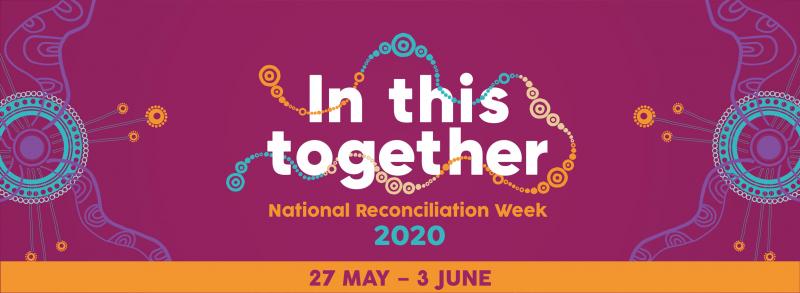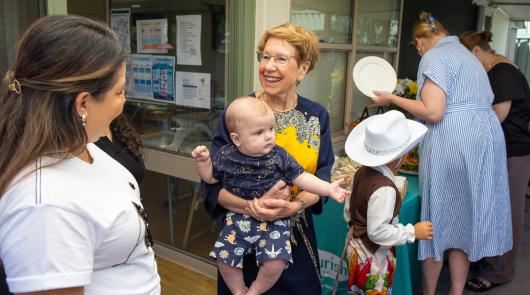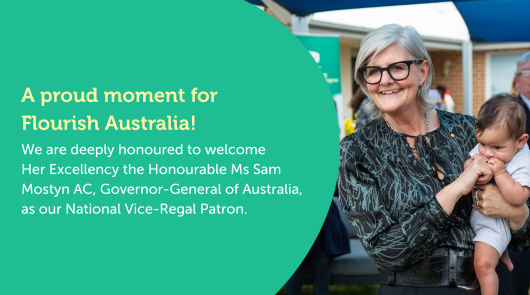
Together building communities that value Aboriginal and Torres Strait Islander peoples, histories, cultures, and futures.
At Flourish Australia we're committed to learning from Aboriginal and Torres Islander people and communities, working in a true partnership, built on mutual respect and shared understanding. Reconciliation CEO Karen Mundine says "Reconciliation is a journey for all Australians – as individuals, families, communities, organisations and, importantly, as a nation. At the heart of this journey are relationships between Aboriginal or Torres Strait Islander Peoples and the broader community."
An “In This Together” theme chosen for National Reconciliation Week in 2020 has turned out to be appropriate in more ways than could have been forseen. It is equally applicable to the need for a unified response by all Australians to the COVID-19 pandemic. Just as we need to come together in a crisis, so we need to work together to achieve reconciliation.
The fundamental purpose of the week is to build communities that "value Aboriginal and Torres Strait Islander peoples, histories, cultures, and futures."
“Much has happened since the early days of the people’s movement for reconciliation, including greater acknowledgement of Aboriginal and Torres Strait Islander rights to land and sea; understanding of the impact of government policies and frontier conflicts and an embracing of stories of Indigenous success and contribution,” said Ms Mundine when announcing the theme for 2020.
“While much has been achieved, there is still more work to be done and this year is the ideal anniversary to reflect on how far we have come while setting new directions for the future.”
The impact of COVID-19 may be disproportionately greater upon Aboriginal and Torres Strait Islander peoples than other Australians. We know that the infection can be more serious for a person diagnosed with chronic, underlying conditions such as heart disease, kidney disease or cancer. Indigenous health experts James Ward and Jason Agostino say that "around 50% of First Nations People live with one of the major chronic diseases… almost a quarter have two or more." The relative risks are compounded by the fact that one in eight First Nations People live in overcrowded housing while those living in regional areas may also have limited access to health care services. Many remote areas are reliant upon fly-in-fly-out health care visits.
Statistically, the incidence of chronic disease, including diabetes, is more prevalent in elderly people and people with lived experience of serious mental health issues . As the National Reconciliation Week theme says; we really are "In this together."
Australia participates in National Reconciliation Week from 27 May to 3 June every year.
By Warren Heggarty, Panorama Magazine
Talk to us today
For more information, contact us on 1300 779 270 or make an enquiry now.


